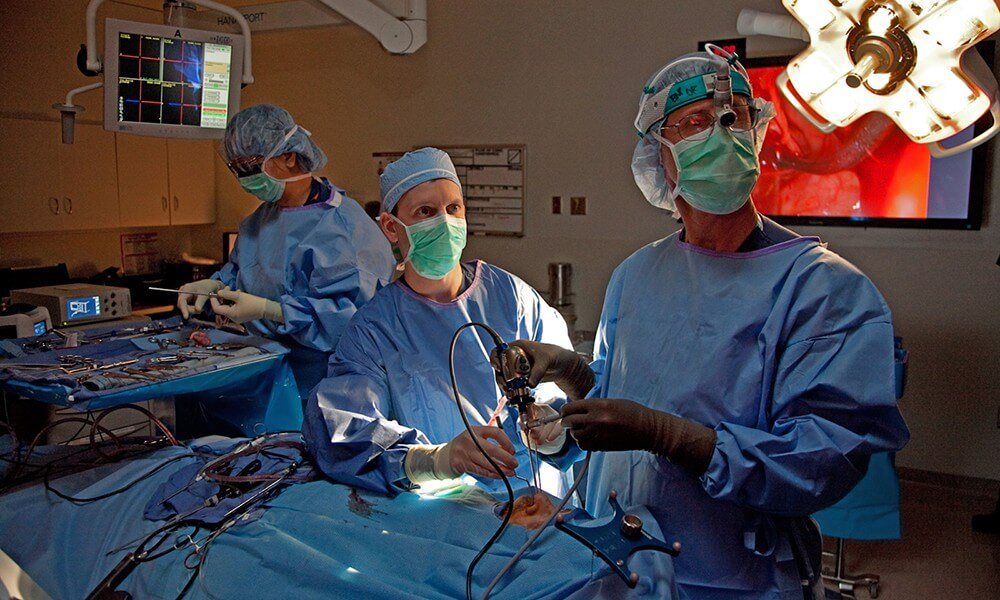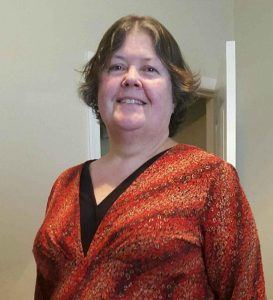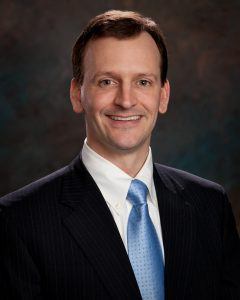
Barrow Patient Enjoying Her ‘New Normal’ After Pituitary Tumor Surgery
“Nobody knows,” she said. “I look back at pictures, and I think it was at least 10 years. I’ve always been an obese adult, so I couldn’t even go off of weight gain.”
She did notice, however, that the weight seemed to accumulate more around her midsection over the years, and diet and exercise seemed to have little impact.
“I went to a heart doctor, a kidney doctor, and my primary care doctor,” she said. “It’s not like I hadn’t been seen by doctors over the years, but nobody could figure out what was going on. Then once I got diagnosed with diabetes, the answer to everything became, ‘Well, you have diabetes.’ ”
Kerbo was also diagnosed with high cholesterol and high blood pressure, and she was eventually taking 10 different medications at once.
“Every time I’d go somewhere to find out what was going on, they would give me a new medication,” she said.

Barrow Patient
About two years ago, Kerbo received a call from her daughter in Chicago who was tested for Cushing’s disease after experiencing sudden weight gain. Kerbo had never heard of the condition.
“My daughter went home and looked it up, and she called and said, ‘Mom, I don’t have this, but you do,’ ” Kerbo recalled. “I looked at pictures online and went, ‘Oh my God, these people look just like me.’ ”
Kerbo realized she had many other symptoms of Cushing’s disease, such as a large neck, bruising on her arms, redness on her face, a hump on her back, fatigue during the day, and difficulty sleeping at night.
I taught first grade for a short while, but at the time I didn’t realize that the Cushing’s disease took me out,” she said. “I was exhausted. I couldn’t do it.”
Convinced she had Cushing’s disease, she visited an endocrinologist and had her cortisol levels checked. The test results were inconsistent, but an MRI scan of her brain later showed that she had a noncancerous pituitary tumor, also called a pituitary adenoma.
The pituitary gland, which is located at the base of the brain, is referred to as the “master gland” because it regulates bodily functions through the hormones that it produces. A tumor in the pituitary gland can cause Cushing’s disease by secreting excess amounts of the adrenocorticotropic hormone (ACTH). This hormone stimulates the adrenal glands, causing them to produce too much of the stress hormone cortisol. Symptoms of Cushing’s disease are related to excess cortisol.
Kerbo researched the Barrow Pituitary Program and scheduled an appointment with Neurosurgeon Dr. Andrew Little.
After more testing, she went in for transsphenoidal surgery on Monday, Oct. 26 to have the tumor removed.
“It was the easiest surgery I’ve ever had in my life,” she said. “They went up my nose to remove the tumor, and two hours later I was awake and talking on the phone.”
Two days later, she was released from the hospital with her only discomfort being nasal congestion.
She began to see relief from her symptoms shortly after surgery and has lost 50 pounds since Jan. 1. She has also significantly reduced her medication intake.
Kerbo still has some muscle weakness and soreness in her joints, but she expects those issues to improve with time and exercise.

Barrow Neurosurgeon
“I am so pleased that Margaret finally has relief from Cushing’s disease,” Dr. Little said. “She has been struggling with this problem for a long time. Now she can get back into life.”
For Kerbo, that means spending quality time with her husband of 41 years, eight children, and six grandchildren.
“A lot of people with Cushing’s disease have symptoms that persist for a long time,” she said. “I feel really lucky to have my energy level back and be able to sleep more than three or four hours a night.”
Kerbo is now sharing her story with others so that they seek treatment sooner rather than later.
“I don’t want anybody else to have to live 10 years or more with this and not know it,” she said.
Kerbo will be giving a talk called “Living with the New Normal” at Barrow’s Pituitary Education Day on Saturday, May 14.
